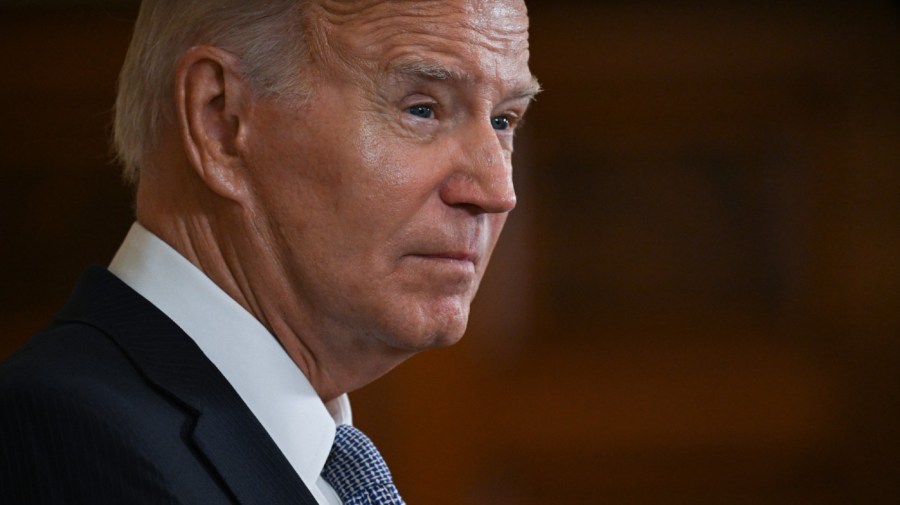
President Biden on Wednesday warned he would stop supplying Israel with offensive weapons like bombs and artillery shells if Israeli forces launch an invasion of Rafah, laying down a clear line amid outcry over the conflict in Gaza.
“Civilians have been killed in Gaza as a consequence of those bombs and other ways in which they go after population centers,” Biden told CNN’s Erin Burnett in an interview.
“I made it clear that if they go into Rafah — they haven’t gone in Rafah yet — if they go into Rafah, I’m not supplying the weapons that have been used historically to deal with Rafah, to deal with the cities — that deal with that problem,” Biden added.
The White House has urged Israel against sending forces into Rafah without a clear plan to evacuate civilians safely, as the war has already left tens of thousands of Palestinians dead. About a million refugees have settled in Rafah after fleeing fighting in northern Gaza.
But Netanyahu has been adamant about plans to destroy Hamas, the group that controls Gaza and orchestrated the Oct. 7 attacks that killed more than 1,100 Israelis. And he says that requires going after Hamas leaders hiding out in Rafah.
Biden has grown increasingly frustrated with Netanyahu in private, and last month suggested in a call with the prime minister that the U.S. could reassess its support for Israel if it did not do more to protect civilians and humanitarian workers.
The U.S. reportedly paused a shipment of bombs to Israel last week over concerns of a looming full-scale invasion of Rafah. But Wednesday’s comments are the first time he has explicitly threatened to cut off the shipment of offensive weapons to the U.S. ally.
“We’re going to continue to make sure Israel is secure in terms of Iron Dome and their ability to respond to attacks that came out of the Middle East recently,” Biden told CNN. “But it’s, it’s just wrong. We’re not going to — we’re not going to supply the weapons and artillery shells.”
White House national security communications adviser John Kirby told reporters Tuesday the U.S. was closely monitoring Israel’s actions in Rafah, after its soldiers took control of a border crossing in Rafah.
Kirby indicated it did not rise to the level of a full-scale military operation that U.S. officials had warned against. The operation, Kirby said, was aimed at cutting off Hamas’s ability to ship arms across the border into Rafah.
“How they’ve described this is not of a size, scale, duration and scope that one could equate to a major ground operation. But again, it’s just started,” Kirby said.














